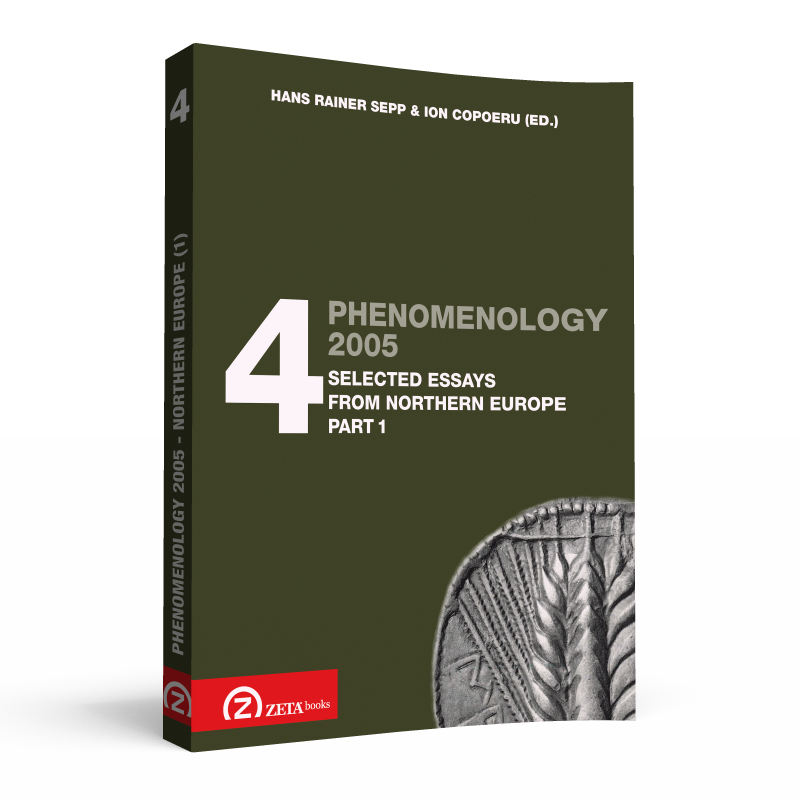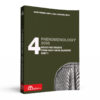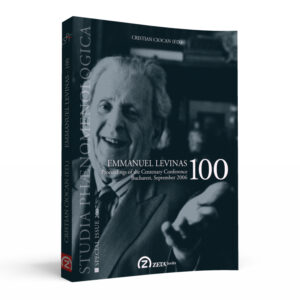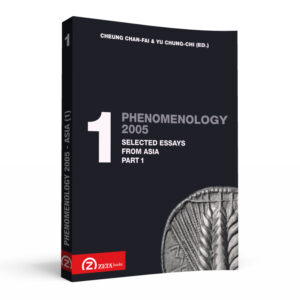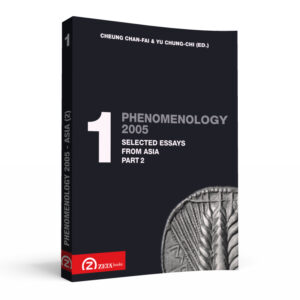Phenomenology 2005 is a very large publication, a total of over 4000 pages. There are 5 volumes (one for each geographical area, e.g. Asia / Latin America / Euro-Mediterranean Area / Northern Europe / North America ). Each of the 5 volumes comes in two parts. Thus, Phenomenology 2005 runs across 10 volumes, each can be ordered separately.
The two volumes of essays coming from Europe – the Northern as well as the Southern part including the whole Mediterranean area – relate to practically all the fields of the today’s ongoing phenomenological research. They present a general idea of how phenomenologists from this area today confront the “classical” questions of phenomenology and show how new themes and modes of inquiry have been opened. A large part of the essays deal with the central questions of the phenomenology, such as world, consciousness, ego, language, truth, epochē, phenomenality, body, alterity, attention, affection, and praxis, but also with fresh and provocative topics, such as dance, border experiences, violence, and biological objects. The main figures of the phenomenological movement have, of course, a privileged place. In the order of the frequency of occurrences, they are Husserl, Merleau-Ponty, Heidegger, Schutz, Gurwitsch, Patocka, Levinas, Michel Henry, Ricoeur, Fink, Rombach, Anders, Noica, and Dragomir. There are important debates between phenomenology and representatives of other philosophical schools and the deeper philosophical tradition from Plato and Kant to Wittgenstein, Derrida, Foucault, and Adorno. Other essays shed light on the fruitful relation of phenomenology with researches in sciences (ethno-methodology, cognitive sciences, Gestaltpsychologie) or the arts (painting, literature, and architecture). Finally, some of the essays document the cultural and personal milieu in which phenomenology arose, figures such as those of Adolf und Anne Reinach, Edmund und Malvine Husserl, and Edith Stein being brought into the light anew.
TABLE OF CONTENTS
Introduction
1. Adolf und Anne Reinach Edith Steins Mentoren im Studium und auf dem Glaubensweg
— Beate Beckmann-Zöller
2. Promises and Excuses: Derrida and the Aporia of Narcissism
— Agata Bielik-Robson
3. Querungen der Welt: Eugen Finks untergründige Themenfelder
— Anselm Böhmer
4. Alterity in the Philosophy of Edith Stein: Empathy and God
— Jonna Bornemark
5. The Care of the Soul in Gorgias
— Martin Cajthaml
6. Heidegger and “Russian Questions”
— Alexei Chernyakov
7. Jan Patočka and his Concept of an “A-Subjective” Phenomenology
— Ivan Chvatík
8. Der Konsumtempel als postmoderner Mythos und als verwirklichte Utopie der Posthistoire
— Mădălina Diaconu
9. Die Pluralität des Menschen. Die Anthropologien Eugen Finks und Heinrich Rombachs im Vergleich
— Thomas Franz
10. Über die Undefi nierbarkeit des Menschen und die Grenzen der Weltanschauungen
— Wolfhart Henckmann
11. Heidegger and Kafka Before the Law
— Terri J. Hennings
12. A Shared Carnal Humanity The Language of Proximity in Body, World and Alterity
— Annette Hilt
13. The Question of Truth in Existential Phenomenology
— Tomas Kačerauskas
14.The Question Concerning Dance Technique
— Gediminas Karoblis
15. Transformation des Intentionalitätsbegriffs in der Phänomenologie und ihre Relevanz für die Sozialwissenschaft
— Vakhtang Kebuladze
16. Transcendental Subjectivity as Alternative to Adorno’s Objectivist Notion of Subjectivity in his Informal Music
— Jael Kraut
17. Husserl’s Practical Philosophy: The Project of a Scientific Ethics
— Andrei Laurukhin
ISBN: 978-973-88633-6-1

